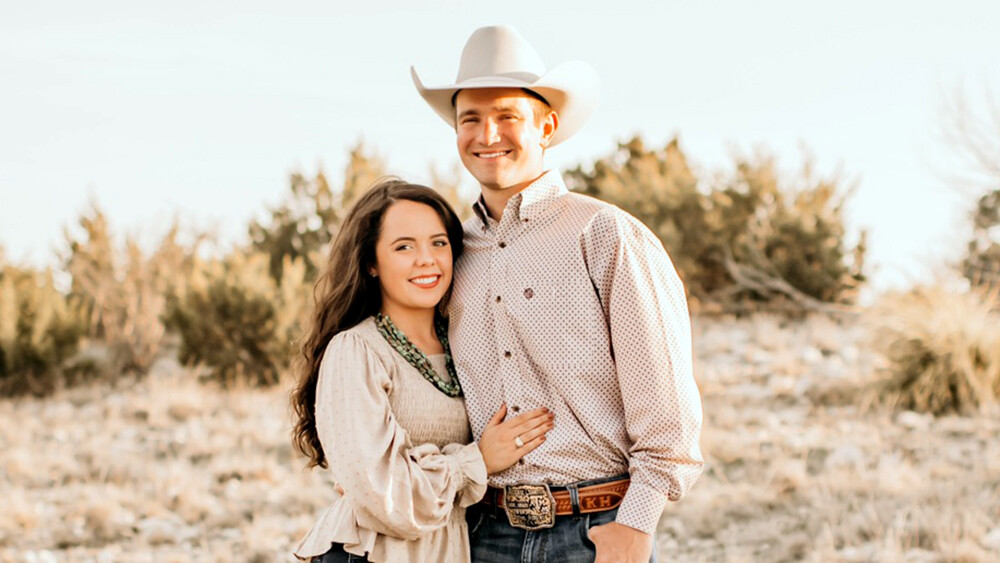
Lincoln, Neb. —Growing up, Morgan Hodges always wanted to work in the cattle industry. Her father was a livestock extension specialist, allowing her to be around production agriculture to see and learn about a lot of places and operations.
A native of Kingsville, Texas, she attended Texas A&M University with a major in animal science, but like most college students, finding a focus area in the program was a bigger challenge.
“At first, I wanted to do beef cattle genetics, and then it switched to reproduction or nutrition,” said Hodges. “Until one day I realized that I liked applying a little bit of each of those topic areas and found my sweet spot.”
She met her now husband, Kade, while in college at Texas A&M and after graduating and getting married in 2021, the couple moved to West Central Texas. Now Kade is the sixth-generation working on his family’s cattle and sheep operation, which has been a mainstay in the community since 1889.
The couple have started their own business, Hodges Livestock, leasing a little over 6,000 acres to raise replacement ewes and rams, along with beef cattle and goats. They also lease a feedlot, mix their own feed, and finish out a portion of their lambs and kids.
A lifelong learner, Hodges was eager to continue her education and pursue a master’s degree in hopes of being able to further improve the family business. She looked at a few programs before choosing the Master’s of Applied Science (M.A.S.) degree program at University of Nebraska-Lincoln with a specialization in Beef Cattle Production.
“I met with Dr. Andrea Watson on the phone and was really impressed with her dedication to the program,” said Hodges. “I really saw the high level of education that they could provide while still being in a distant setting, and that was something that really drew me to the program.”
Unlike traditional programs, the M.A.S. opts to require a research project instead of a thesis. Faculty members work with the students to design their projects, providing resources like existing data sets for the students to use to complete their research project requirements. Despite being separated from campus by over 800 miles, Hodges’ experience in the program was similar that of any traditional student.
“Between all of the communication via e-mail and Zoom meetings, my experience really mirrored what it would have been like in an in person setting,” she said. “I didn't necessarily expect that initially, but the work that the faculty put into providing distance students with the same, or as close to the same, experience as the in-person students was really special to me.”
Her experience also helped her build her confidence to promote agriculture. She is currently serving on the Young Farmer and Rancher Advisory Committee with the Texas Farm Bureau and traveled to Washington D.C. to speak with lawmakers about important agricultural issues.
“Agriculture is such an important industry, and we need to be able to promote best practices,” said Hodges. “The coursework has allowed me to more effectively speak about and share the science behind agricultural practices.”
Hodges defended her research project, “Effects of Nitrogen Fertilization and Dried Distillers Grains Plus Solubles Supplementation on Performance of Growing Cattle,” in March and has already started to implement things that she learned through her coursework into their business.
“One of my favorite things about the program was watching my tuition dollars transform into positive decisions that directly benefitted our operation,” said Hodges. “We’re hoping to expand and diversify our business more, while continuing to evaluate research for more opportunities as they arise.”
For more information on the M.A.S. Program at the University of Nebraska-Lincoln, please visit https://appliedscience.unl.edu/master-applied-science-degree.







